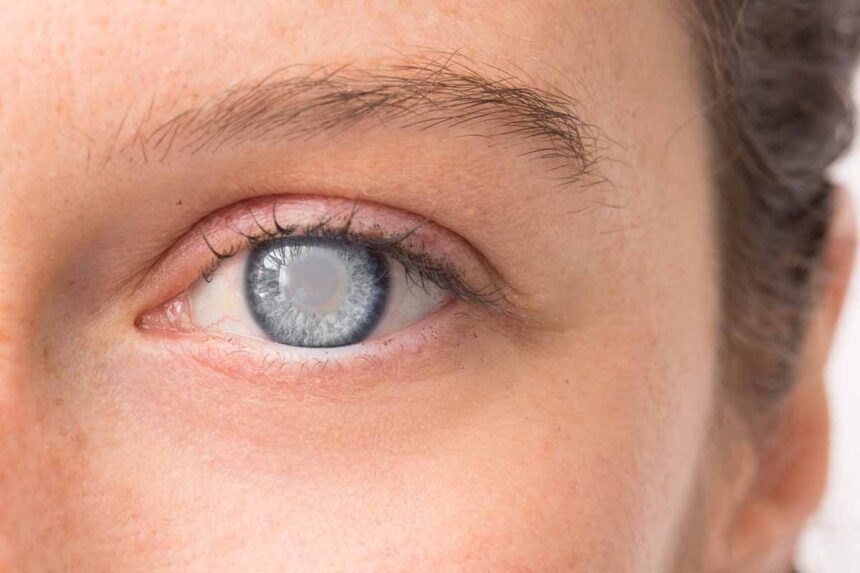Early detection of cataracts can make a significant difference in preserving clear vision and maintaining well-being. Cataracts often develop gradually, causing subtle changes. Recognizing these signs early allows patients to seek timely care, explore treatment options, and prevent further vision impairment. Understanding what to look for is the first step toward better outcomes and long-term eye health.
Recognizing Cataract Symptoms
The early symptoms of cataracts can significantly impact daily life if not identified and addressed promptly. Here is a structured list of common early signs to watch for:
- Blurry vision: Blurry vision that cannot be corrected with glasses or contact lenses. This can make activities such as reading, driving, or performing detailed tasks difficult. Vision often appears hazy or cloudy, akin to looking through frosted glass.
- Changes in color perception: Colors appear less vibrant or take on a yellowish tint. Blues and purples may become harder to distinguish, and colors may seem faded or washed out. This is due to the cloudy lens filtering specific wavelengths of light.
- Light sensitivity: This can cause discomfort or glare in brightly lit environments. Bright lights, such as those from oncoming car headlights at night, may create glare or halos, making night driving challenging. Halos or starbursts around light sources are also common.
Being aware of these symptoms allows for timely medical consultation and intervention.
Noticing Subtle Changes
Frequent changes in your eyeglass prescription can indicate developing cataracts. If you find yourself needing stronger prescriptions more often than usual, the cloudy eye lens may be affecting your vision. Your eye doctor may notice these changes during routine eye exams before you experience obvious symptoms.
Poor night vision serves as another subtle warning sign. You may struggle to see clearly in dimly lit restaurants, have difficulty reading in low light, or find nighttime driving challenging. The cloudy lens reduces the amount of light reaching your retina, making it harder to see in darker conditions.
Double vision in one eye can occur with certain types of cataracts. This differs from double vision caused by eye muscle problems, which affects both eyes. Single-eye double vision may come and go or worsen gradually as the cataract progresses.
Understanding Early Detection
Early detection allows for better planning and timing of treatment. While cataracts cannot be reversed with medication or eye drops, cataract surgery can be highly successful when performed at the appropriate time. Detecting cataracts early gives you and your doctor time to monitor the progression and plan surgery when it will be most beneficial.
Untreated cataracts can lead to complete vision loss in the affected eye. The lens becomes increasingly cloudy over time, eventually blocking most or all light from entering the eye. Modern cataract surgery techniques offer excellent results when performed before cataracts become advanced. Laser-assisted surgery and premium lens implants provide better outcomes when the eye structures remain healthy. Waiting too long can complicate surgery and reduce the potential for optimal vision correction.
Seeing an Eye Doctor
Schedule an eye exam if you notice any changes in your vision. Eye doctors can detect early cataracts during comprehensive eye exams. Adults over 60 should have annual eye exams to monitor for cataracts and other age-related eye conditions. Those with diabetes, a family history of cataracts, or previous eye injuries may need frequent evaluations. Your eye doctor will recommend an appropriate examination schedule based on your individual risk factors. Seek immediate evaluation if you experience sudden vision changes, severe light sensitivity, or significant difficulty with daily activities due to vision problems.
Schedule Your Cataracts Evaluation Today
Recognizing the early signs of cataracts empowers you to take control of your eye health and vision. Blurry vision, color changes, light sensitivity, and frequent prescription changes all warrant a professional evaluation. Early detection provides more treatment options and better outcomes. Contact a trusted eye care provider near you today to schedule your comprehensive eye examination and cataracts evaluation.









